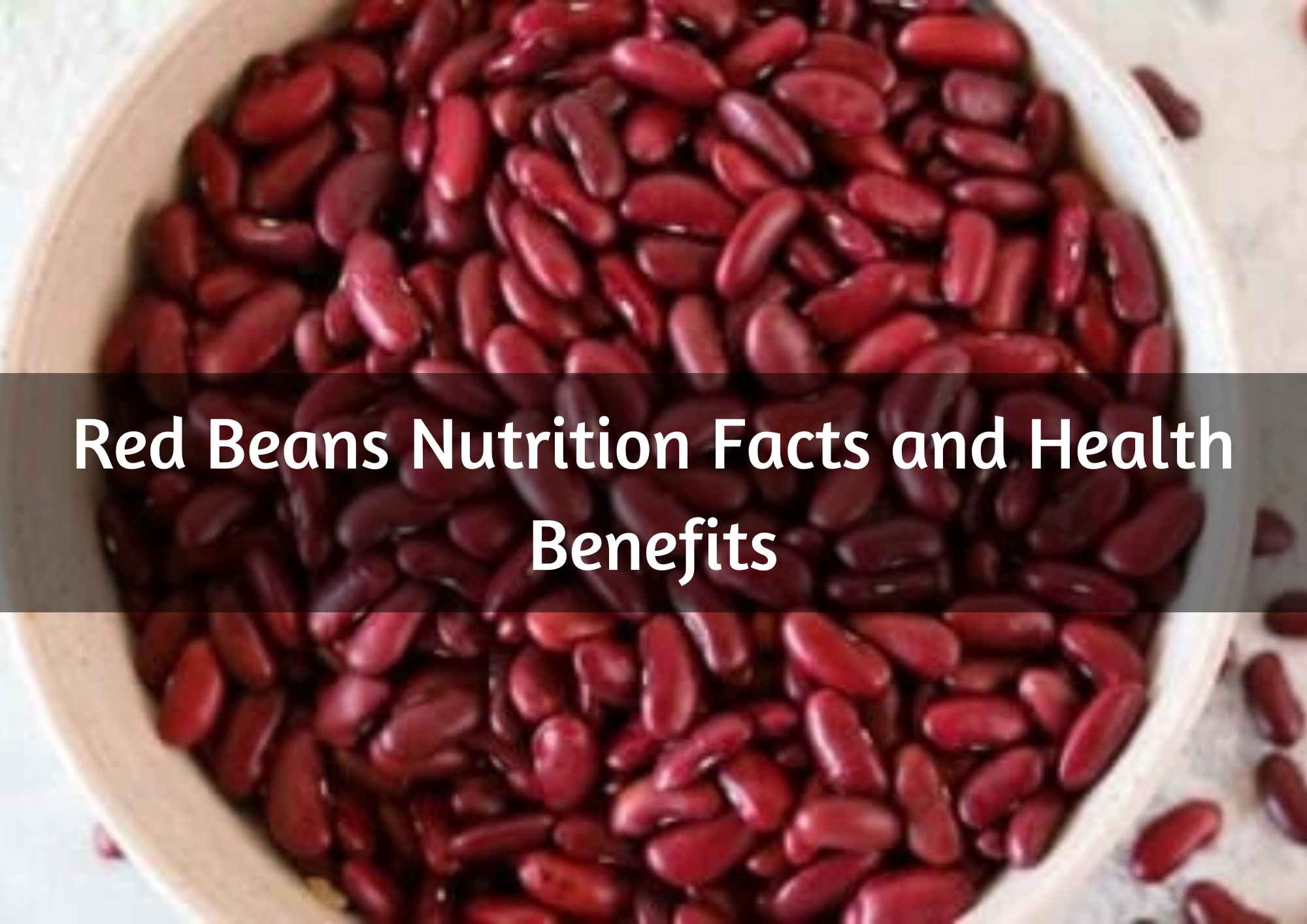
Red Beans Nutrition Facts and Health Benefits
Red beans, frequently overlooked in favor of more popular legumes, are nutritional powerhouses that merit a prominent spot in a balanced diet. Known for their rich, earthy flavor and versatility in culinary applications, red beans offer a myriad of health benefits supported by their impressive nutrient profile. This article delves into the nutritional facts of red beans and explores the various ways they contribute to overall health and well-being.

Source: HealthifyMe
Nutritional Profile
Red beans, particularly kidney beans, are packed with essential nutrients that support optimal health. One-cup of cooked red beans provides:
| Nutrient | Amount per cup | % Daily Value* |
|---|---|---|
| Calories | 225 | – |
| Protein | 15 grams | – |
| Fat | 0.9 grams | – |
| Carbohydrates | 40 grams | – |
| Fiber | 13 grams | – |
| Iron | 3.9 mg | 22% |
| Folate | 230 mcg | 58% |
| Magnesium | 76 mg | 19% |
| Potassium | 742 mg | 21% |
| Vitamin B6 | 0.2 mg | 11% |
This robust nutritional profile underscores the potential health benefits of incorporating red beans into your diet.
High in Protein
A notable characteristic of red beans is their high protein content. With 15 grams of protein per cup, they serve as an excellent plant-based protein source, making them particularly valuable for vegetarians and vegans. Including red beans in your diet can help meet daily protein requirements, especially in plant-based diets where protein sources might be limited.
Rich in Fiber
Red beans are a fantastic source of dietary fiber, providing 13 grams per cup, which is about half of the recommended daily intake. Moreover, fiber aids in regulating blood sugar levels by slowing the absorption of sugar, which can be beneficial for individuals with diabetes or those at risk of developing the condition.
Heart Health
The high fiber content in red beans also contributes to heart health. Soluble fiber, specifically, aids in lowering cholesterol levels by binding with cholesterol particles in the digestive system and eliminating them from the body. This can lower the risk of developing cardiovascular diseases such as heart attacks and strokes. Additionally, the potassium in red beans helps regulate blood pressure, further supporting cardiovascular health.
Blood Sugar Control
Red beans have a low glycemic index, meaning they cause a slower and more stable rise in blood sugar levels. This property, combined with their high fiber content, makes them an excellent food choice for managing blood sugar levels. For individuals with diabetes, incorporating red beans into meals can help maintain steady blood glucose levels and prevent spikes that can lead to complications.
Rich in Antioxidants
Red beans are abundant in antioxidants, which play a critical role in protecting the body from oxidative stress and free radical damage. These components assist in lowering inflammation and reducing the probability of developing illnesses such as cancer and heart disease. The deep red color of the beans is indicative of their high content of anthocyanins, a type of antioxidant that has been linked to numerous health benefits, including reduced inflammation and improved cardiovascular health.
Supports Weight Management
The combination of high protein and fiber content in red beans makes them a valuable ally in weight management. Protein and fiber both promote satiety, helping you feel fuller for longer periods and reducing overall calorie intake. By incorporating red beans into your diet, you can curb overeating and support healthy weight loss or maintenance efforts.
Bone Health
Red beans are a good source of essential minerals like magnesium, calcium, and phosphorus, which are vital for maintaining strong and healthy bones. Magnesium is essential for bone formation and the maintenance of bone density. Regular consumption of red beans can enhance overall bone health and lower the risk of osteoporosis and fractures.
Digestive Health
In addition to promoting regular bowel movements, the fiber in red beans acts as a prebiotic, feeding the beneficial bacteria in the gut. A healthy gut microbiome is essential for overall digestive health and can help prevent gastrointestinal issues such as irritable bowel syndrome (IBS) and inflammatory bowel disease (IBD). By supporting a healthy balance of gut bacteria, red beans can enhance nutrient absorption and boost immune function.
Versatility in Cooking
Beyond their nutritional benefits, red beans are incredibly versatile and can be incorporated into a wide variety of dishes. They can be used in soups, stews, salads, and casseroles, or even as a base for dips and spreads. Their robust texture and ability to absorb flavors make them a delightful addition to any meal, enhancing both nutrition and taste.
Red beans are a nutritional powerhouse that offers a plethora of health benefits. From their high protein and fiber content to their rich supply of essential vitamins and minerals, these legumes are a valuable addition to any diet. Whether you’re looking to improve heart health, manage blood sugar levels, support weight loss, or enhance overall well-being, red beans provide a simple and delicious solution. By incorporating them into your meals regularly, you can enjoy the diverse health benefits they offer while savoring their rich, earthy flavor. So, next time you’re planning your meals, consider making red beans a staple in your culinary repertoire and take a stride toward better health.




